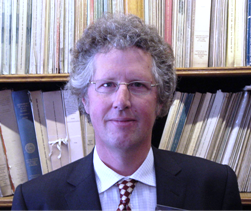Philip Allen on why Chartership may not be compatible with the spirit that animates academic scientists
 It is with slight embarrassment, rather than defiance, that I read of the Society’s successful drive to increase take-up of chartership and accreditation (Geoscientist 23.11, p7). It is unambiguously a good thing, in my view, for practitioners of geoscience to be certified according to rigorous professional standards. Then why have I, along with many others in the academic community, resisted applying for chartership despite having spent 40 years since graduation employed as a geologist and almost as long as a Fellow, and having served on Council and acted as Science Secretary? It’s not that I am too lazy, or haven’t the time.
It is with slight embarrassment, rather than defiance, that I read of the Society’s successful drive to increase take-up of chartership and accreditation (Geoscientist 23.11, p7). It is unambiguously a good thing, in my view, for practitioners of geoscience to be certified according to rigorous professional standards. Then why have I, along with many others in the academic community, resisted applying for chartership despite having spent 40 years since graduation employed as a geologist and almost as long as a Fellow, and having served on Council and acted as Science Secretary? It’s not that I am too lazy, or haven’t the time.
PRINCIPLES
This sense of embarrassment got me thinking about what science actually is. The body of scientists is a community based on shared principles, and the dazzling success of science has been in large part because this community has held together over the centuries through adherence to ideas about freedom and scholarship, through being persuaded by nothing other than the discovery of what might be called ‘fact’.
The sort of community that is needed to ensure the achievement of this virtuous goal is one of independence, so that we are not swayed by motives outside of the search for truth, and a mark of this independence is the value given to originality. Scientists therefore dissent rather than club together, since this is a signal of freedom to think independently rather than being browbeaten by dogma. True, scientists do not always live up to these ideals of scholarship and behaviour, but when they fail, it is generally recognized as bad and involves reputational damage.
It is because of this very nature of science that I find it difficult to align myself with the solemn codes of conduct of professional organizations. Such organizations rightly guide their members in what is recognized as good practice, protect their members from accusation from outside, provide models of behaviour and a college of like-minded professionals and I dare say friends. But unlike in the community of science, these codes do not spring from the work being regulated – they are imposed externally by the expectations of society at large.
DIFFERENT WORLDS
The academic scientist and the professional are members of different social worlds. Ideally, the scientist does not need to be reminded to behave him/herself since he has an unwritten contract to do so with other members of the community of science. He/she does not need the geological version of a Hippocratic Oath. After 40 years of independence, originality and dissent, I find it difficult to exchange one social world for another.
The Geological Society has on its logo ‘serving science and profession’. I now appreciate that this phrase means exactly what it says - not a merger of science and profession, but two linked social worlds serving society. The problem is that knowing this doesn’t quite extinguish my sense of embarrassment.
- Philip Allen holds the Chair in Earth Science at Imperial College’s Department of Earth Science & Engineering.